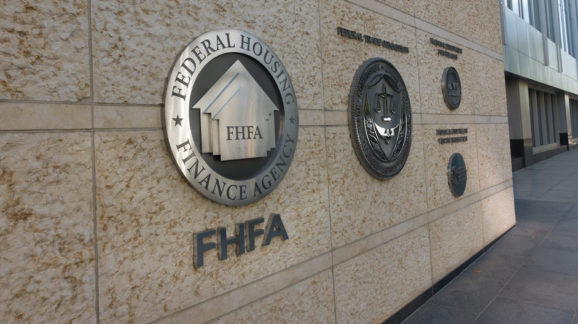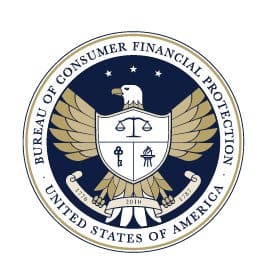Appeals Court Rules Federal Housing Finance Agency Unconstitutional

 Big news out of the Fifth Circuit Court of Appeals—the Federal Housing Finance Agency (FHFA) is unconstitutionally structured.
Big news out of the Fifth Circuit Court of Appeals—the Federal Housing Finance Agency (FHFA) is unconstitutionally structured.
The FHFA was created in the wake of the 2008 financial crisis and tasked with overseeing Fannie Mae and Freddie Mac, the two giant government-sponsored enterprises that were put into conservatorship after imploding during the mortgage meltdown. The agency has been a topic of controversy since its inception, with a novel structure that heavily insulates it from presidential control. Appropriately, the Fifth Circuit ruled that FHFA’s structure violated the Constitution’s separation of powers:
We hold that Congress insulated the FHFA to the point where the Executive Branch cannot control the FHFA or hold it accountable. We reach this conclusion after assessing the combined effect of the:
(1) for-cause removal restriction;
(2) single-Director leadership structure;
(3) lack of a bipartisan leadership composition requirement;
(4) funding stream outside the normal appropriations process; and
(5) Federal Housing Finance Oversight Board’s purely advisory oversight role.
Supreme Court precedent establishes that Congress has the ability to partially insulate agencies from the executive branch, but as this court found, “Congress cannot enshroud an agency in layers of independence-promoting insulation to the point at which the President cannot adequately control the agency’s behavior.” In other words, agencies may be independent, but they may not be isolated.
Interestingly, the FHFA decision has repercussions for the constitutionality of another post-financial crisis regulator: the Bureau of Consumer Financial Protection (BCFP), formerly known as the Consumer Financial Protection Bureau, or CFPB. The five features cited by the court are virtually identical to what the Bureau exhibits. The Bureau has a sole director, removable only “for cause.” It also skirts congressional appropriations by receiving its funding from the Federal Reserve. It would seem pretty clear then that the ruling does not bode well for the Bureau—especially given that there is currently a constitutional challenge to the BCFP’s structure at the 5th Circuit.
However, the Court does find a distinguishing feature between FHFA and the BCFP, point (5): “With respect to the [BCFP], the President, through the Financial Stability Oversight Council, can influence the [BCFP]’s activities.” The FSOC is a council of 10 different regulators that together hold broad authorities to identify and monitor excessive risks to the U.S. financial system. The FSOC also has a veto power over the Bureau, which the court claims is a “powerful” oversight mechanism as opposed to the “purely advisory oversight role” of the Federal Housing Finance Oversight Board:
No statutory provision provides for formal Executive Branch control over the FHFA’s activities. The closest thing is the statutorily created Federal Housing Finance Oversight Board. Two of the Board’s four members are Cabinet officials who are beholden to the President: the Secretary of the Treasury and the Secretary of Housing and Urban Development. But the Board may not “exercise any executive authority, and the Director may not delegate to the Board any of the functions, powers, or duties of the Director.” The Board exercises purely advisory functions; it cannot require the FHFA or Director to do anything.
This distinction, however, is fatally flawed. FSOC is for all practical purposes a toothless check on the Bureau. The supposed powerful “oversight mechanism” cited is this: all BCFP regulations become final unless a supermajority of FSOC members vote it down. The FSOC is only able to vote to overturn a BCFP regulation or action, however, if it threatens the entire “safety and soundness” of the U.S. financial system. That is an almost insurmountable task for a consumer protection regulation to do. While the president may vehemently disagree with the Bureau’s decision to regulate arbitration agreements, payday loans, or prepaid cards, none of those regulatory actions would threaten to bring down the entire financial system. The Bureau would virtually have to prohibit an entire class of widespread credit instruments to do so, a hurdle that renders the veto threat practically useless.
Further in the analysis, the Fifth Circuit recognizes that in order to maintain “adequate control” of an agency, the president must retain “sticks” that he can use to demand accountability. This includes the power to remove his subordinates: “Congress cannot transform the President into a ‘cajoler-in-chief’ who can only offer carrots.”
But relying on the FSOC to assert discipline on the Bureau is at best “cajoling.” For example, the president would barely have any recourse if he or she were to disagree with an FSOC veto decision. Only two out of the ten representatives are from positions that are directly removable by the president. If FSOC were to take an action that the president disagreed with, it is not likely that they would suffer any consequence, as it would not satisfy termination “for cause.” This even contrasts to an independent agency with a bipartisan commission, as the president can demand some accountability through their ability to designate and remove chairs of the agency at will. Further, two of the voting representatives are from the Bureau itself, which is unlikely to vote against its’ own action, and FHFA, which the Fifth Circuit deemed unaccountable to the president.
The current Trump administration is a clear example of why the president does not control the Bureau of Consumer Financial Protection through FSOC. It is certain that this administration did not agree with either the arbitration rule or the payday lending rule promulgated during its tenure by an Obama-appointed Director. The president even signed a Congressional Review Act resolution to block the arbitration rule. But regulating arbitration agreements and payday lending does not come close to endangering the financial system, so it could not be overturned by FSOC veto.
As the Fifth Circuit rightly recognized in footnote 233, “Some question whether the FSOC is a ‘meaningful substitute check’ on the [BCFP]’s actions.” Indeed, this was the debate in PHH v. CFPB, at the en banc D.C. Circuit level, between Judge Henderson and Judge Wilkins. Jude Henderson’s analysis of the FSOC oversight claim is copied below in full (citations omitted):
[T]he threat of supermajority veto by the Financial Stability Oversight Council is not a meaningful substitute check. The Council (another unelected body) can “set aside a final regulation” of the [BCFP] only if the regulation “would put the safety and soundness of the United States banking system or the stability of the financial system of the United States at risk.” As far as the Council is concerned, then, the [BCFP] can break the law or abuse its power as long as it does so (1) in an enforcement action or (2) in a regulation that does not threaten national financial ruin. A recent episode illustrates how toothless the Council’s veto is in controlling [BCFP] policy. In July 2017, the [BCFP] finalized one of its most controversial policies to date: a rule prohibiting certain providers from entering arbitration agreements with consumers to stave off class actions. The acting Comptroller of the Currency, one of the Council’s ten voting members, sought data so that he could determine the rule’s “safety and soundness implications.” In response, the [BCFP] Director asserted that, because the rule’s projected impact is “less than $1 billion per year,” it is “plainly frivolous” to suggest the rule “poses a safety and soundness issue.” The Director also implied that the Comptroller was “distort[ing] the FSOC process” because of a mere “disagree[ment] with the policy judgments for the rule.”
The rule was published in the Federal Register the next day. The fact that anyone mentions the Council’s narrow veto as a check is instead a testament to the BCFP’s unaccountable policymaking power.
As the Fifth Circuit correctly identified, Congress cannot isolate an independent agency from meaningful executive oversight, or else the president could not fulfill his responsibility to ensure the faithful execution of the nation’s laws. But a toothless FSOC is not the saving grace of BCFP constitutionality, as it does not render the Bureau meaningfully accountable to the President.
If the FHFA is unconstitutional because of the “combined effect” of five insulating features, then so too is the BCFP.